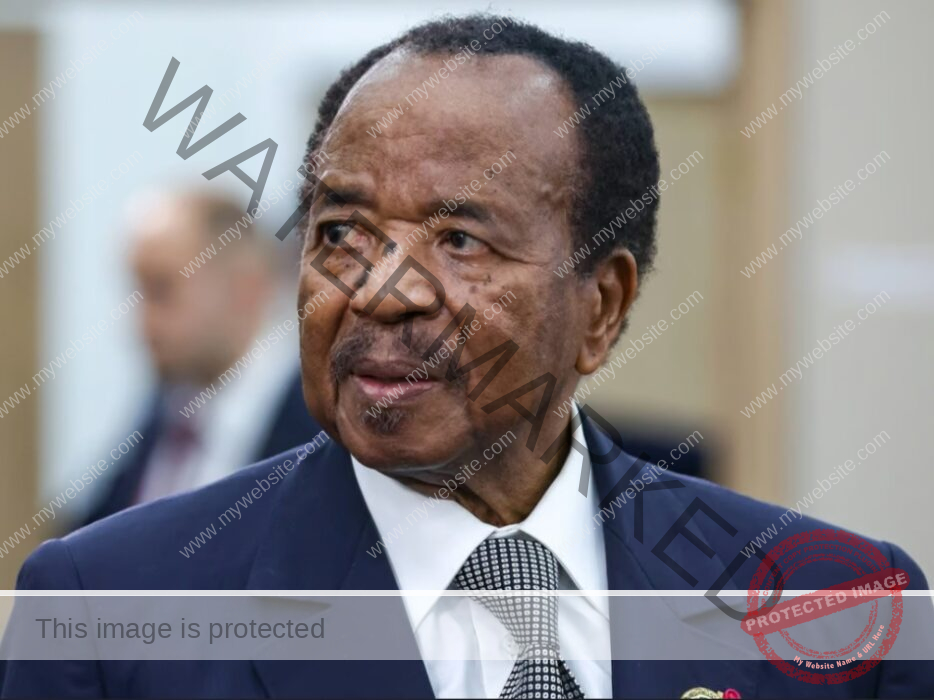After more than four decades in power, the 92-year-old ruler faces a nation exhausted by corruption, repression, and war. His so-called victory brings neither renewal nor reconciliation; instead, it raises a single, defining question: Can he bring the house in order, or will Cameroon continue its slow descent into disintegration?
By The Independentist Editorial Desk
The Constitutional Council has once again declared President Paul Biya the winner of Cameroon’s October 12th presidential election. After more than four decades in power, the 92-year-old ruler faces a nation exhausted by corruption, repression, and war. His so-called victory brings neither renewal nor reconciliation; instead, it raises a single, defining question: Can he bring the house in order, or will Cameroon continue its slow descent into disintegration?
A Broken Union and a Deepening Wound
Since 1961, when the British Southern Cameroons voted to join the already independent Republic of Cameroon in a federation of equals, Yaoundé has never once compromised. Every promise made at Foumban was broken. Federalism was abolished, Anglophone institutions were dismantled, and a distinct people were absorbed into a centralized system that never respected their identity or their rights.
From that betrayal, today’s war was born.
For eight years, the conflict in the Southern Cameroons — or Ambazonia — has torn the country apart. Tens of thousands have been killed, thousands imprisoned, and millions displaced or forced into exile. Entire communities lie in ruins; schools, churches, and hospitals have been reduced to rubble in a war that should never have existed.
The government continues to call it an “internal crisis,” yet the truth remains clear: this is a political and historical conflict between two former UN trust territories, not an internal rebellion.
Dialogue Without Honesty
La République du Cameroun has repeatedly demonstrated bad faith in every attempt at dialogue. Each initiative began with optimism and ended in manipulation.
The 2019 Major National Dialogue was little more than a staged performance — with handpicked delegates, pre-scripted speeches, and strict prohibitions against discussing federalism or independence. It ended as it began: empty and irrelevant.
The Swiss Process, launched in 2019 with international goodwill, initially seemed promising.
Both Yaoundé and several major Ambazonian movements endorsed it, and Switzerland’s Federal Department of Foreign Affairs offered neutral facilitation. But soon after signing letters of intent, Yaoundé abruptly withdrew, denying Swiss involvement and halting progress. The collapse of that process exposed Cameroon’s chronic pattern — endorse in daylight, sabotage at midnight.
Then came the Canadian-facilitated peace initiative of early 2023. It, too, began with cautious hope and international support. Within weeks, Yaoundé again reversed itself, publicly denying any agreement with Ottawa to mediate. Ambazonians aptly renamed it the “Canadian Monologue.”
These three failures — the National Dialogue, the Swiss Process, and the Canadian Initiative — are not coincidences. They form a pattern spanning sixty-four years: La République du Cameroun has never negotiated in good faith since 1961.
Negotiations Must Be Between Sovereigns
If peace is to mean anything, it must begin with truth. The war in Ambazonia is not an internal security matter. It is a dispute of sovereignty between La République du Cameroun and the Federal Republic of Ambazonia — two former trust territories that entered a union as equals and now stand apart as equals.
True negotiations must therefore be sovereign-to-sovereign, under impartial international supervision.
Civil society groups and religious bodies may support the process, but they cannot substitute for the legitimate representatives of the two nations.
On the Ambazonian side, President Dr. Samuel Ikome Sako, elected by the Ambazonian people, remains the legitimate interlocutor. His government’s position has been consistent:
Ambazonia seeks peace, but will never negotiate its sovereignty. Sovereignty is not a bargaining chip; it is the foundation of nationhood.
The Legacy of Bad Faith
Since 1961, Yaoundé’s political DNA has been defined by deceit and domination. Every reform — from decentralization decrees to the creation of regional councils — has been designed to maintain central control rather than share power.
Each gesture of dialogue has been followed by renewed repression. This strategy has destroyed all trust and legitimacy.
It is not Ambazonia that rebelled against the union; it is La République du Cameroun that violated it.
A union sustained by force and falsehood is not unity — it is occupation.
President Biya now stands where other empires once stood — like France in Algeria and Britain in India — facing a people who refuse to remain subjects in a system built on denial.
The Only Path to Peace
If Biya’s government truly intends to stabilize Cameroon, three irreversible steps are necessary:
Recognize the Political Nature of the Conflict.
Admit that this is not a domestic insurrection but a political dispute between two former trust territories whose union collapsed.
Cease Hostilities and Release All Political Prisoners. Genuine dialogue cannot take place while civilians, journalists, clergy, and elected representatives remain in detention.
Accept Internationally Supervised Negotiations Between Sovereigns. Talks must take place on neutral ground, with credible guarantors, and must address the full political reality — including the right of the Ambazonian people to self-determination, transitional justice, and peaceful coexistence between two nations. Anything less is not peace; it is deception dressed as dialogue.
The Final Moment of Truth
After forty-three years in power, Paul Biya has one final test — to end the war through truth or prolong it through deceit. Ambazonia’s position remains firm: sovereignty is sacred and non-negotiable.
Ambazonia will work for peace, but never for surrender.
The blood of tens of thousands already cries from the soil of Ambazonia. The world must not look away, and history will not forget those who allowed injustice to persist.
Cameroon and Ambazonia now stand at the edge of history. If peace is to come, it must be founded not on deceit, but on dignity; not on domination, but on dialogue between equals.
The Independentist Editorial Desk

